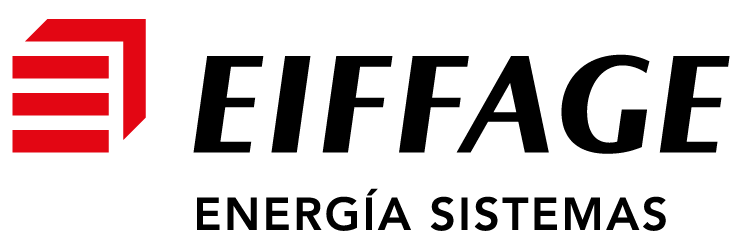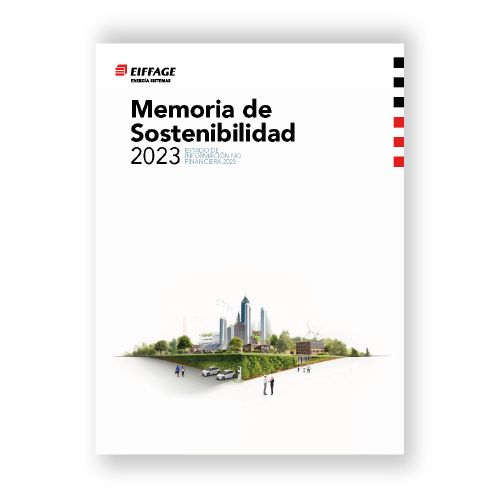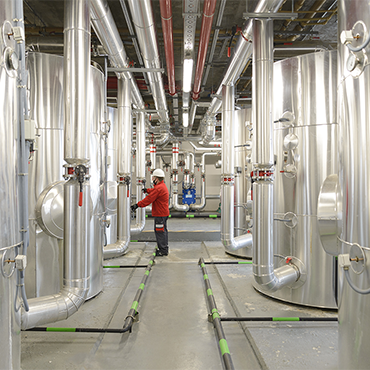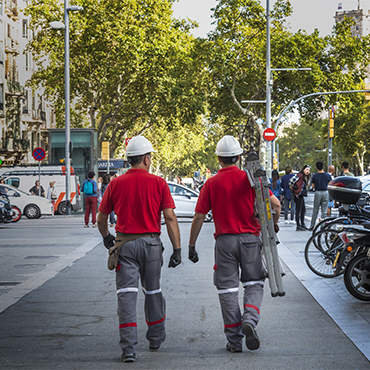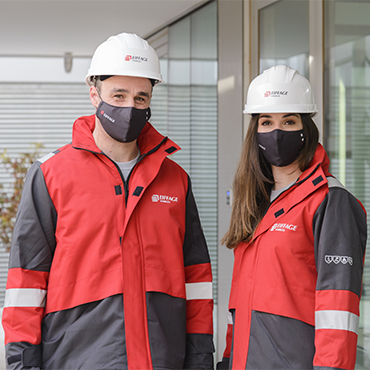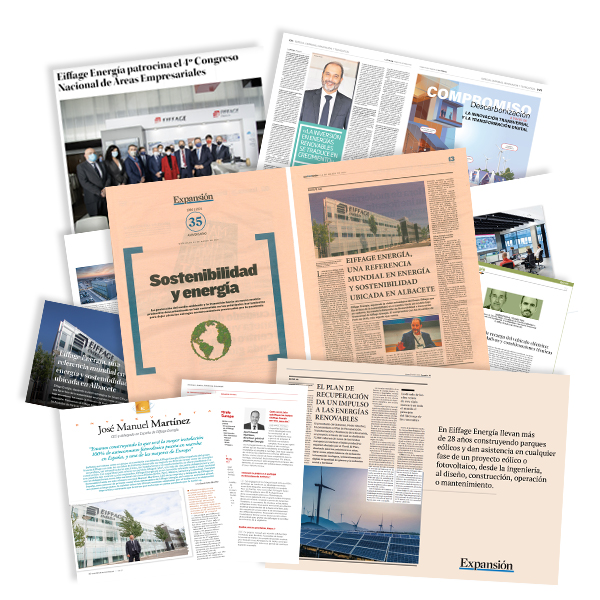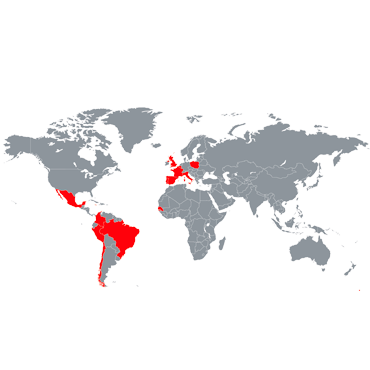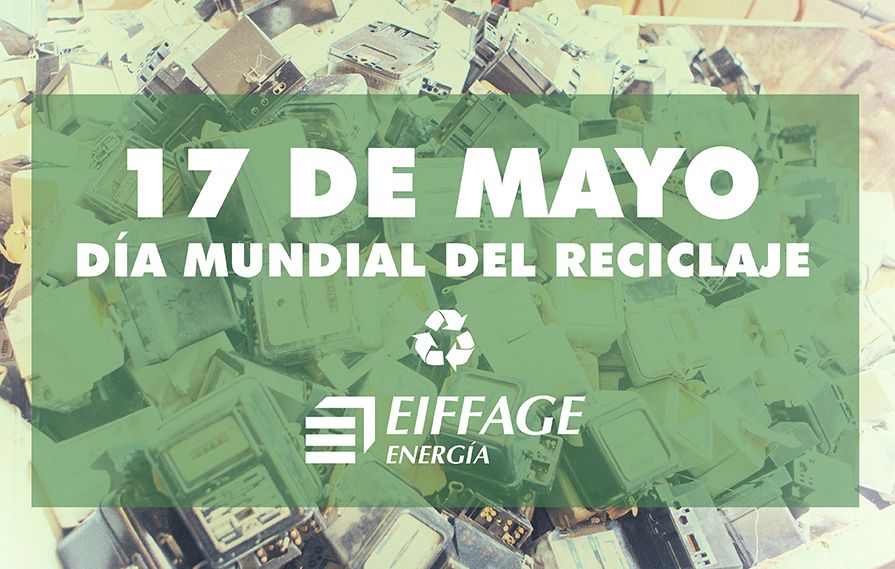Recycling is a process through which we convert rubbish or waste into new products or raw material for later use.
Waste or recyclable materials are varied and are around everyday life, they include paper and cardboard, glass, wood, textiles, iron and non-iron metal and electronic and electric components.
Eiffage Energía believes that recycling helps build a better planet, world, and country. According to data recorded at the end of 2017, the company recycled a total of 20.637 kg of paper and cardboard, 17.945 kg of plastic, 161.945 kg of wood and 500.561 kg of metal.
Recycling materials or waste has many advantages for the environment and the community in general, such as:
- Decreasing emissions of greenhouse gases
- Reusing potentially useful materials.
- Reducing energy use in new product processes.
- Reducing contamination of the air through, for example, waste incineration processes.
- Reducing contamination of water by leachates, which are produced in rubbish tips.
- Reducing consumption of new raw material, with the resulting saving of energy and damage to the environment in the extraction processes and obtaining of raw material (for example, mining extraction processes, or the felling of trees).
For a recycling process to be effective all the stages involved in a recycling process must be taken into account, which range from the user of the products to the final recycling. In all these stages the correct application of the criteria for recycling will result in that a high final percentage of recovered material is obtained.
In the whole recycling chain, the action of the user who acquires a product or material and who has to get rid of this at the end of its useful life is fundamental to carry out a correct recycling process with great efficiency.
To do this, the user must properly separate each of the materials or products to recycle them according to their nature, in their homes or companies by depositing them in the containers which local corporations or private firms make available.
From these containers for separating waste according to its nature begins a pilgrimage along the recycling chain passing through transfer plants (waste is collected according to its nature to make a larger amount for transport which minimises this cost), separation or classification plants (waste is classified and that which is recoverable is separated) to the recovery plant where the waste is finally recycled.
Focussing on company level, recycling of materials and waste is fundamental in companies’ activities, as a great amount of materials and equipment is used by them in manufacturing processes or implementation of installations, which consist of containers and packaging, which have to be disposed of, as well as equipment which has reached the end of its useful life or the raw material waste which cannot be reused.
For all the above, at Eiffage Energía we believe that private companies have the responsibility to provide adequate means for the segregation of waste and materials in their facilities by the installation of containers, which will subsequently be collected by companies authorised in waste management. Companies that contract these waste management companies must be sure that the processes to which they are destined will be recycling, reuse or recovery, by discarding, wherever technically possible, those processes that include incineration, depositing in landfills, etc.
This management, apart from being an established obligation for companies, has a very important component of commitment to society, company workers (through awareness campaigns), and to the environment.
At Eiffage Energía we bend over backwards in activities which expound the care and awareness for a cleaner planet. In addition, Eiffage Energía has the certification of the quality management system based on the UNE-EN ISO 9001 standardand has implemented the Environment management system according to the UNE-EN ISO 14001 standard.
Our commitment also focuses on generating processes that reduce the mass consumption of raw materials and non-renewable energy along with the development of new green energy to reduce the footprint of climate change.
Francisco Lopez Labrador, Eiffage Energía Quality and Environment manager.
